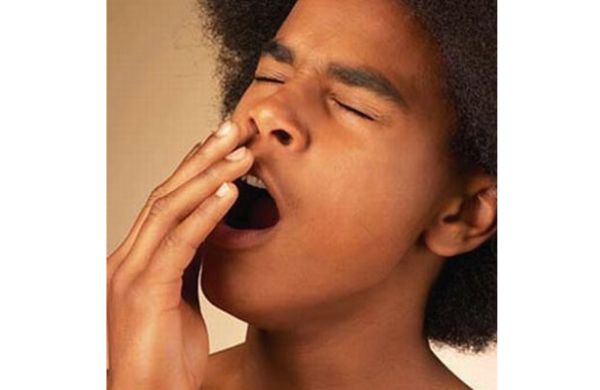
Sleep disorder is one of the major cause of reduced productivity the world over. Studies reveal sleep disorders if left unattended can considerably affect our health. Since, sleep is a natural process by which our body repairs and renews itself during the night. Modern technological advancements and faulty lifestyles are a major cause of sleep disorders. Often one feels deprived of sleep in spite of having a good night’s sleep or wakes up with tired or aching muscles. Some common conditions, causes, and remedies of sleep disorders are listed below.
1. Poor sleep and waking up with a bad taste in one’s mouth
Often one may wake up several times during night without actually knowing the reason for the disturbed sleep. This condition arises due to the commonly overlooked “acid reflux” which may not be accompanied with heartburn thus it goes unnoticed. This condition can be checked by avoiding heavy acidic, fatty, citrus and spicy meals. Also one should take meals at least two hours prior to sleep. Doctors also prescribe chewing gums that aids salvation and thus neutralizes the stomach acid. Certain medications such as aspirins and other painkillers can aggravate the situation since they adversely affect the esophageal lining and should therefore be avoided unless acutely needed. Easily available over the counter antacids can help in mild conditions.
2. Loss of sleep due to repeated use of bathroom during the night
The natural body process functions in a way as to eliminate wastes after 6-8 hours so that one can have a peaceful night sleep. However, in older people, bladders are unable to hold on to liquids and thus the urge for urinating occurs during nights. Other specific conditions such as inflamed prostrate glands in males or urinary tract infections in females can lead to repeated usage of bathrooms, thereby requiring an immediate appointment with one’s doctor. Excessive liquid diet, such as fruit juices, alcohol, soups, coffee and tea which are acidic in nature can also lead to the above condition, thus these should be avoided at least three hours before going to bed. A simple antidiuretic can help in mild conditions.
3. Sleeplessness due to bruxism
The condition also known as jaw clenching or teeth grinding causes sleep disorders as the muscles remain strained and tensed during night and is accompanied with stiff neck and headaches when one wakes up. A thorough check up of one’s teeth is mandatory. Even chewing gums during day time may lead to involuntary emulation of the process at night thus causing disturbed sleep patterns. Hence, people suffering from the above condition are advised to avoid chewing gums. Some serious medications include use of gridding devices called Grindcare and botox injections to the jaw muscles.
4. Restlessness and repeated movements across the bed while sleeping
Attributed to Periodic Limb Movement Disorder, this sleep disorder is caused due to restless leg syndrome. Usually this occurs due to one’s inability to go into the REM sleep stage which is the deep sleep stage. This condition requires immediate attention and one’s doctor should be consulted on an urgent basis. Diabetes, arthritis, peripheral neuropathy, anemia, thyroid disease and kidney problems can contribute to restless leg syndrome. Medications such as antihistamines, antidepressants and the likes can aggravate the condition. Often the medication used to cure Parkinson’s disease is found to be equally effective for curing PLMD.
5. Waking up with dry mouth or bad breath
Mouth breathing or snoring can lead to waking up exhausted. This is because this kind of breathing which does not occur through one’s nose might be a cause of obstructed nasal passage which requires serious attention. At times small changes to one’s lifestyle can help prevent the disorder. Consuming alcohol which relaxes the nose and mouth muscles and thus causes dehydration leads one to breathe through mouth. Avoiding alcohol, snore stopping nose strips easily available over the counter, or nasal drops that moisten the nose and even weight loss can considerably reduce this sleep disorder.
6. Fitful sleep accompanied with sore throat, stiff neck and exhaustion
Sleep Apnea or Upper Airway Resistance Syndrome, a disorder caused due to interrupted breathing patterns usually in ten seconds, may be caused due to several reasons and yet go unnoticed. This condition usually happens when the throat muscles are obstructed and the air passage is temporarily stopped, thereby leading to reduced oxygen supply to the brain and hence making the brain alert. The best remedy is the see an otplaryngologist, who could diagnose the exact problem area, mouth, nose or throat. Usually masks such as Continuous Positive Airway Pressure and Bilevel Positive Airway Pressure Device help maintain pressure and blow air directly into the airways. Under acute conditions surgery may be necessary to clear the tract.
7. Feeling sleepy all through the day in spite of a good night’s sleep
Our brains are wired to go to sleep at night when it gets darks, however when the day – night cycle is disrupted the brain does not receive the correct signals and thus one wakes up tired. A hormone melatonin is released as soon as the rooms are darkened which induce sleep, under disturbed conditions such as, listening to loud music, using electronic appliances like mobiles, laptops, television, ipads etc; signals the brain to remain alert by hindering the release of melatonin. This disorder can easily be checked by darkening rooms at nights, avoiding electronic devices, listening to soothing music or reading books. A small change in one’s sedentary lifestyle by waking up early in the morning and going for walks can considerably help in alleviating this sleep disorder.




